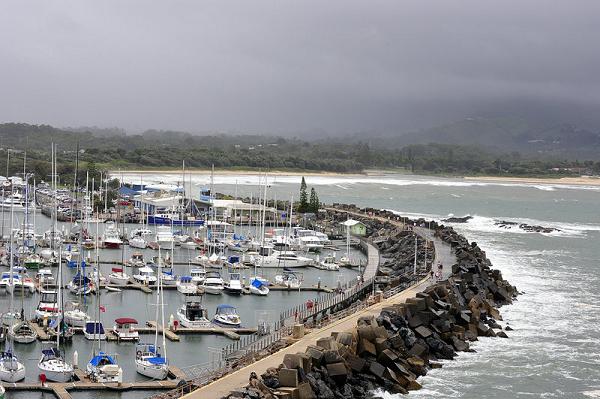Dream of turning your love for travel into a rewarding career? Becoming a travel agent lets you craft unforgettable experiences for others while exploring the world, enjoying flexible work hours, and specializing in unique travel niches. This guide breaks down how to launch your career, stand out in the industry, and thrive as a trusted travel expert.
Why Become a Travel Agent?
1. Flexibility & Global Reach
Work remotely from anywhere with an internet connection! As a travel agent, you’ll enjoy the freedom to set your own schedule, manage clients on your terms, and even operate as your own boss. Whether from a cozy home office or a beachside café, the world becomes your workspace.
2. Turn Wanderlust into a Career
Fuel your passion for discovery by researching exotic destinations, scoring exclusive travel perks (like discounted stays or complimentary “fam trips”), and gaining firsthand knowledge to design seamless itineraries. Your expertise helps clients explore hidden gems and create lifelong memories.
3. Growing Demand & Specialization
With travel booming post-pandemic, skilled agents are in high demand. Clients value personalized service that online booking platforms can’t match. Stand out by specializing in niches like:
- Luxury Travel: Curate bespoke vacations with VIP access.
- Adventure Travel: Plan adrenaline-packed trips for thrill-seekers.
- Eco-Tourism: Promote sustainable, eco-friendly destinations.
- Corporate Travel: Manage seamless business trips for professionals.
Types of Travel Agents: Find Your Path
Independent vs. Agency-Based
- Independent Agents: Freelance with full control over branding and clientele, but handle all business operations solo.
- Agency-Based Agents: Join an established agency for mentorship, resources, and pre-existing networks—ideal for structured support.
Top Travel Niches to Consider
- Destination Weddings: Design dream ceremonies in exotic locales.
- Family Vacations: Create kid-friendly itineraries with all-ages activities.
- Cultural Tours: Focus on immersive, educational experiences.
- Group Travel: Organize retreats, tours, or milestone celebrations.
Pro Tip: Align your niche with personal interests and market demand. Research trending destinations (e.g., wellness retreats, digital nomad hubs) to stay ahead.
Must-Have Skills for Success
- Client-Centric Communication
Listen actively, respond promptly, and build trust through transparent dialogue. Happy clients become repeat customers and referrals! - Detail-Oriented Planning
Juggle multiple bookings, deadlines, and preferences effortlessly. Use tools like Trello or Asana to stay organized. - Sales & Marketing Savvy
Promote your services via social media, blogs, or email campaigns. Highlight unique offers (e.g., “Honeymoon Package Deals”) to attract clients. - Tech Proficiency
Master booking platforms (e.g., Amadeus, Sabre) and CRM software (e.g., Salesforce) to streamline operations.
Education & Certifications
While no formal degree is required, certifications boost credibility:
- Travel Agent Proficiency (TAP): Perfect for beginners.
- Certified Travel Associate (CTA): Elevates mid-level expertise.
- Certified Travel Counselor (CTC): Advanced credential for career growth.
Where to Certify: The Travel Institute and ASTA offer reputable programs.
Launching Your Travel Business
1. Build a Solid Business Plan
Define your niche, target audience, and marketing strategy. Highlight what makes you unique—like insider access to boutique hotels or disaster-recovery guarantees.
2. Choose Your Business Model
- Online-Only: Low-cost, high-reach via digital marketing.
- Home-Based: Flexible and budget-friendly.
- Brick-and-Mortar: Ideal for local visibility but higher overhead.
3. Legal Essentials
Register your business, obtain licenses, and set up separate banking accounts. Consider liability insurance for added protection.
Attract Clients & Grow Your Brand
- Network Locally: Partner with wedding planners, photographers, or tourism boards.
- Leverage Social Media: Share stunning travel visuals on Instagram, host Facebook Live Q&As, or create TikTok destination guides.
- Collaborate with Suppliers: Negotiate deals with airlines, hotels, and tour operators for exclusive rates.
Tech Tools to Simplify Your Work
- Booking Systems: Use Travelport or Sabre for real-time reservations.
- CRM Software: Track client preferences with HubSpot or Zoho.
- Automation: Schedule emails and reminders via Mailchimp.
Pro Tips for Long-Term Success
- Stay Trend-Savvy: Follow industry news via Skift or Travel Pulse.
- Delight Clients: Surprise them with room upgrades or personalized itineraries.
- Upsell Strategically: Recommend travel insurance, guided tours, or dining experiences.
- Prepare for Crises: Have backup plans for cancellations, natural disasters, or health emergencies.
FAQs
Q: Do I need a degree to become a travel agent?
A: No! Certifications and hands-on experience are often more valuable.
Q: How do I pick a profitable niche?
A: Combine your passions with market research—adventure travel and sustainable tourism are booming!
Q: Can I start without experience?
A: Yes! Many agents begin with certifications, mentorships, and a hunger to learn.
Ready to Transform Lives Through Travel?
The travel industry thrives on passion, expertise, and creativity. By honing your skills, embracing technology, and prioritizing client joy, you’ll build a fulfilling career while helping others explore the world. Start your journey today—adventure awaits! ✈️


